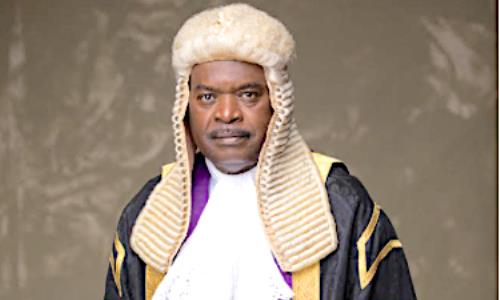
Nigeria’s President, Muhammadu Buhari has recommended the Chief Judge of the Federal Capital Territory (FCT) High Court, Justice Ishaq Usman Bello, for an international appointment.
In a statement on Thursday signed by the Presidential Spokesman, Garba Shehu, the President nominated Justice Bello as a judge at the International Criminal Court (ICC).
Shehu said member states of the ICC are expected to nominate their candidates out of which only six judges will be elected to fill one-third of the court’s 18 judicial seats.
He added that the elections which are scheduled for the 19th session of the assembly of states parties will be held at the United Nations, New York, from December seventh to December 17, 2020.
Profile of Justice Bello
Justice Bello was called to the Nigerian bar in 1983 and has served on several bar and bench committees before his appointment as a member of the National Judicial Council (NJC).
With over 35 years of experience as a legal practitioner, Justice Bello has handled huge special responsibilities under the judiciary including; chairing election petition tribunals, representing Nigeria and leading judges to attend conferences, symposiums and seminars around the world.
As the FCT Chief Judge, Bello gave special attention to the decongestion of prisons within the FCT. He started visiting prisons within his jurisdiction, releasing over 40 awaiting trial prisoners in the process.
In October 2017, he was appointed chairman of the presidential committee on prison reforms and decongestion, now presidential committee on correctional service reforms and decongestion, by Abubakar Malami, minister of justice and attorney-general of the federation.
ICC History
The ICC which began functioning on July 1, 2002, is an intergovernmental organisation and international tribunal which has jurisdiction to prosecute individuals for the international crimes of genocide, crimes against humanity, war crimes, and the crime of aggression.
The ICC sits in The Hague, Netherlands. The ICC, however, lacks universal territorial jurisdiction, and may only investigate and prosecute crimes committed within member states, nationals of member states, or crimes in situations referred to the court by the United Nations security council.
